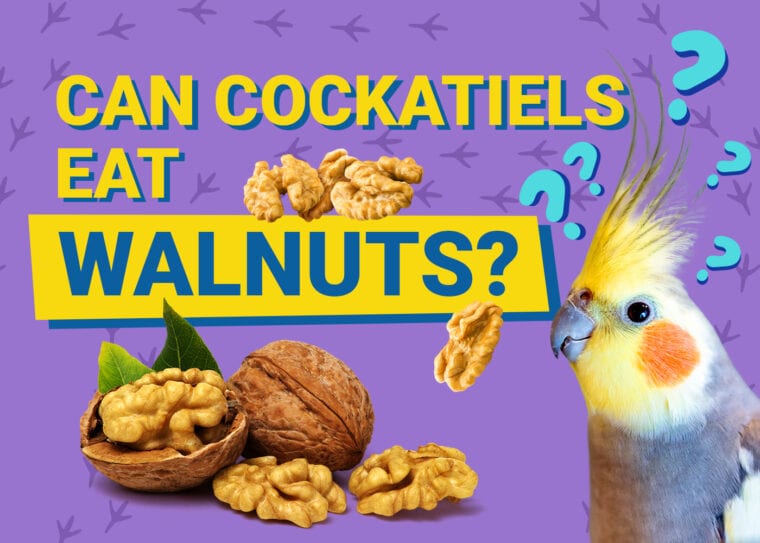
Cockatiels are one of the most popular pet birds. It’s easy to understand why. First, they are so darn cute with their big, dark eyes and whimsical cheek patches. There are also their expressive crests that play a significant role in communication. We all know that parrot-like birds like cockatiels eat seeds. However, you may wonder about other supplements to their diet, such as walnuts.
The answer is that yes, you can feed cockatiels walnuts, keeping a few precautions in mind.
We’ll begin our discussion with what cockatiels eat in the wild. Then, we’ll segue into how that translates into the captive diet with walnuts as part of the mix.

The Cockatiel’s Diet in the Wild
Cockatiels live primarily in the semi-arid and dry areas of Australia into Tasmania. They prefer open places instead of wetlands or dense woods. They are very social and will gather in flocks of sometimes hundreds of birds. Cockatiels are nomadic and will follow food source availability. These birds like to forage on the ground, looking for seeds and nuts.

Cockatiels will also pluck berries and fruits off of bushes and trees. They may also take the occasional insect. They are well-equipped for the task with their sharp curved beaks and muscular tongues. These birds have no problem opening nuts. Cockatiels are particularly fond of Acacia seeds.
Feeding your cockatiels the wrong mixture of seeds can be dangerous to their health, so we recommend checking with an expert resource like The Ultimate Guide to Cockatiels, available on Amazon.

This excellent book will help you balance your cockatiels’ food sources by understanding the value of different seed types, dietary supplements, fruits and vegetables, and cuttlebone. You’ll also find tips on everything from housing to health care!
The Pet Cockatiel’s Diet
The pet cockatiel’s diet is just as diverse. They will readily take a variety of seeds, from oats to millet to sunflower. Like many parrots, they often will pick a few favorites and toss out the rest. Managing their diet is an essential part of keeping one as a pet. Cockatiels will readily take other foods, such as fruits, greens, and nuts. That’s one reason they can eat walnuts.
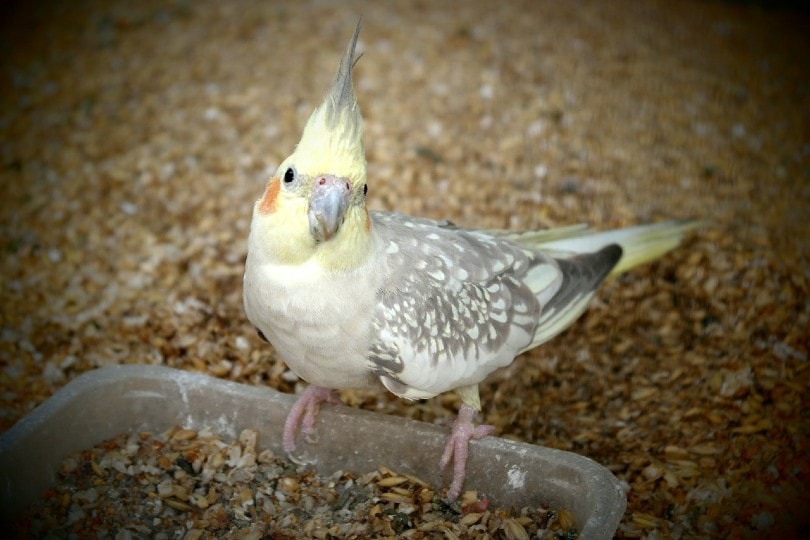
The Nutritional Value of Walnuts
Like other nuts, walnuts pack a lot of calories and fat into a serving. A 1-ounce portion contains 185 calories and 18.5 g of fat. That raises a red flag since cockatiels are susceptible to obesity, particularly if you feed them a high amount of seeds and nuts. On the positive front, walnuts are excellent sources of potassium, magnesium, and calcium. They also have a decent amount of beneficial fatty acids.
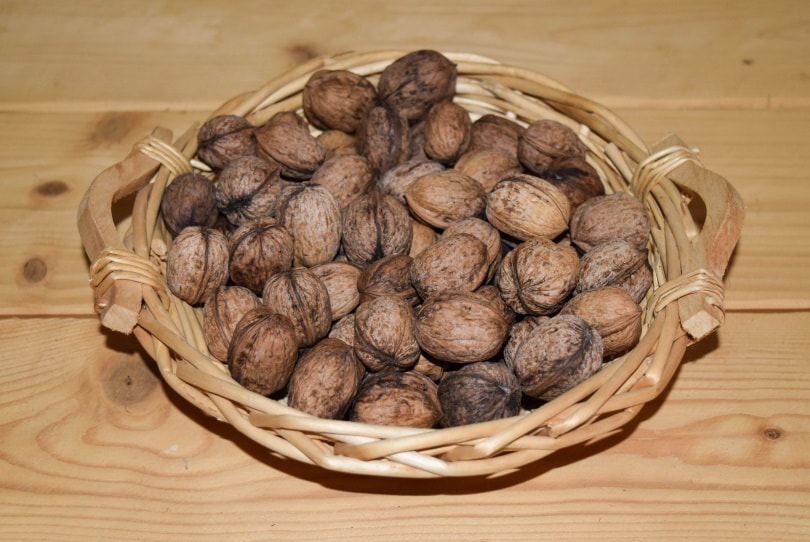
Deciding to Feed Your Cockatiel Walnuts
Our background information provides mixed conclusions about whether you should offer your cockatiel walnuts. Let’s look at both the pros and cons to help you decide.
The Positive Side
Walnuts are an energy- and nutrient-dense food for both cockatiels and people. Many medical experts recommend them as part of a balanced diet as a result. Some research suggests that walnuts can provide additional benefits for cardiovascular and brain health. Cockatiels may profit from these effects, too; but this has yet to be proven by definitive research.
Feeding a bird an all-seed diet won’t ensure that your pet gets all the vitamins and minerals it needs. Instead, providing a wide range of foodstuffs, including walnuts, can fulfill your cockatiel’s nutritional requirements. However, the benefits don’t stop there.
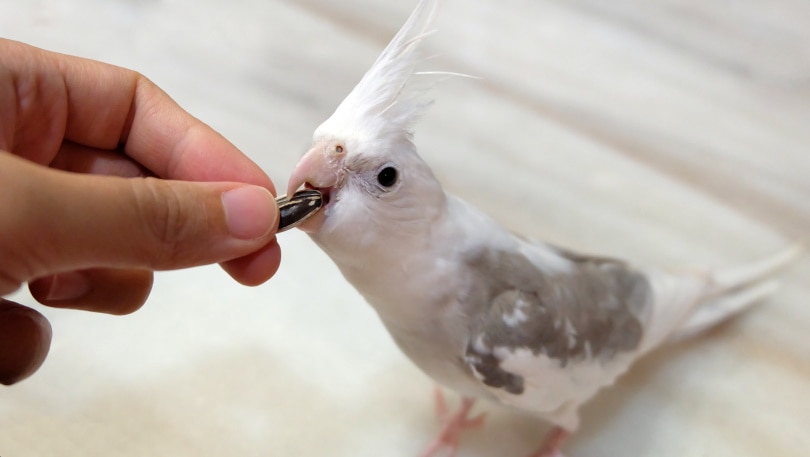
Walnuts may also offer beneficial mental stimulation from trying to crack it open. Parrots, including cockatiels, have zygodactyl feet. That means instead of three toes forward and one back like other birds, they have two going each way. It improves their dexterity as if they had not one but two opposable thumbs. Of course, you can also forgo the challenge and give your pet shelled walnuts.
The Negative Side
The primary disadvantage of giving your cockatiel walnuts goes back to our discussion of calories and fat content. It’s one reason why many experts suggest limiting the amount of sunflower and millet seeds you give your bird. It’s not that they don’t like them. Instead, it’s that cockatiels like them too much. They’re like avian candy. Eating too many can put your pet at risk for nutritional deficiencies.
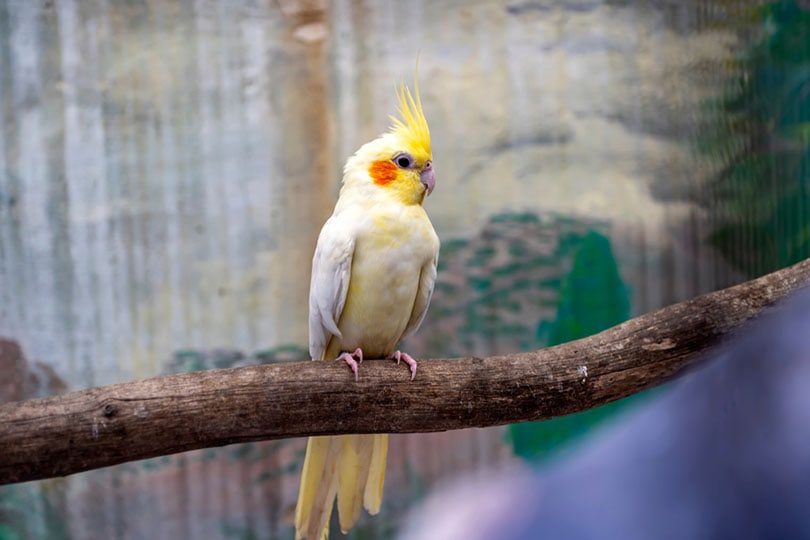
The other factor has nothing to do with your cockatiel’s health but the cost of walnuts. While they’re not the most expensive type, walnuts are spendy, especially the black type. Walnuts are not a cheap treat. It’s worth noting that treats should make up no more than 5% of your pet’s diet.

Final Thoughts
A diverse diet is an excellent way to cover all the nutritional bases. Walnuts can undoubtedly play a vital role on the mineral front. They also provide valuable mental stimulation if you give your cockatiel unshelled nuts.
The primary drawbacks are fat and calories. However, that’s an easy fix if you limit the amount your pet gets. It’ll make them seem more like a special treat that is more affordable in moderation.
Related Topics:
Featured Image Credit: Piqsels









